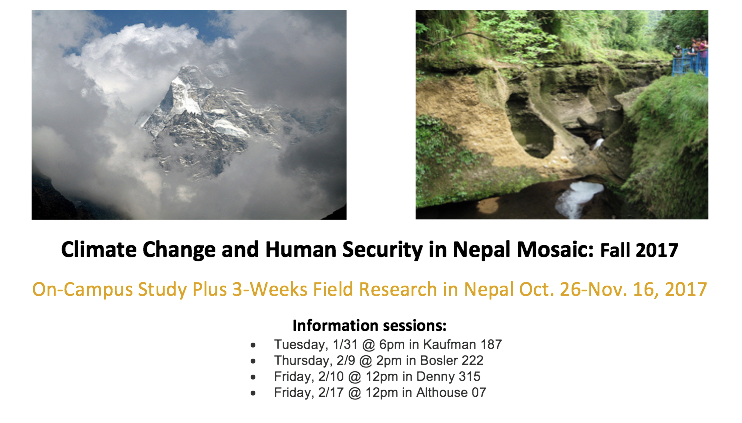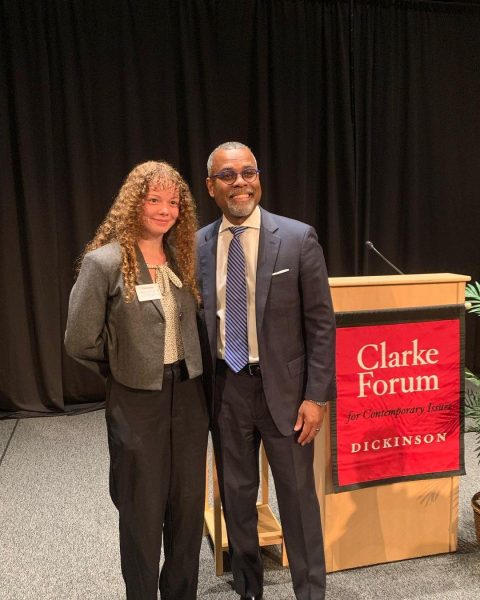New Mosaic to Research Climate Change in Nepal
Photo Courtesy of Mary Ann Leidigh
The flyer advertising the Nepal mosaic.
The application period for Dickinson’s newest mosaic, Climate Change and Human Security in Nepal, is now open. Taking place in the fall of 2017, students in the program will work closely with faculty on research regarding climate change, then take a three-week trip to Nepal to conduct field work.
According to the Dickinson College website, Dickinson’s mosaic programs, founded over 20 years ago, offer students the opportunity to engage with faculty in intensive, interdisciplinary, semester-long research geared towards global issues. Past mosaics have focused on an array of issues such immigration in the Mediterranean, climate change in South Africa and black liberation movements in South Africa and parts of the U.S. Unlike a typical class schedule, mosaics typically have a short fieldwork component abroad mid-semester. The Nepal mosaic will integrate environmental, social and international approaches to climate change.
Students participating will begin their mosaic on campus, taking courses in environmental studies, international business and management, international studies and an independent study based on the individual student’s interests. The mosaic team will then travel to Katmandu, the capital of Nepal, on Oct. 26, 2017, where they will stay for two weeks before heading to Pokhara for another week of research. The program will return to campus on Nov. 16, 2017.
The mosaic will be taught by Michael Beevers, assistant professor of environmental studies; Michael Fratantuono, associate professor of international studies and international business and management and Neil Leary, director of the Center for Environmental and Sustainability Education and contributing faculty in environmental studies.
Beevers, who has worked and lived in Nepal, explains why the country was chosen as the point of study for the program:
“There’s a lot at stake there [in Nepal] in terms of climate change.” He explains that although Nepal will certainly feel the consequences of climate change, the country has some of the lowest greenhouse gas emissions worldwide, making it a compelling case study. Leary echoes Beevers, explaining that Nepal has a “rich set of issues to explore” regarding the intersection of climate change and human security. Nepal’s history of conflict combined with its “geography of extremes,” such as the Himalayan mountains juxtaposed with deep valleys, makes it an interesting point of research.
This mosaic can accommodate up to 15 students. Students of all majors are encouraged to apply. Students are encouraged to open an application by visiting the Global Study and Engagement website and creating an account, before Feb. 15. Students wishing to apply for financial aid must also request aid through the application by the same date. Applications must be completed in their entirety by March 20.
The program fee is estimated at $3,000, plus airfare to Nepal. Future Information sessions will be held Feb. 10 at noon in Denny 315 and Feb. 17 at noon in Althouse 107. To learn more or to begin an application visit dickinson.studioabroad.com or contact Beevers at [email protected], Leary at [email protected] or Fratantuono at [email protected].





